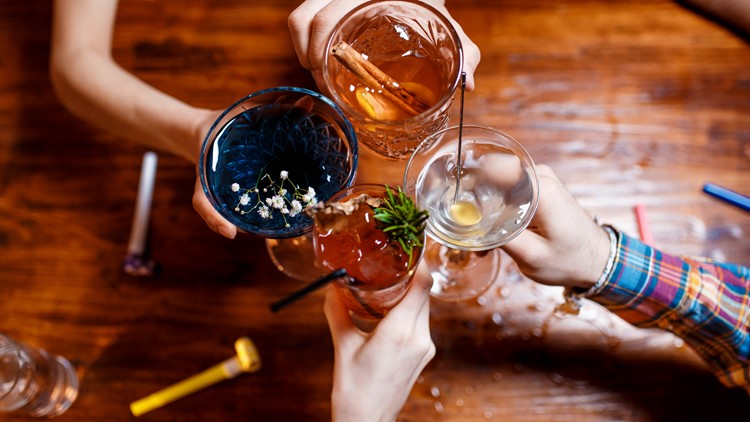PORTLAND, Ore. — The Oregon Liquor and Cannabis Commission says it has resumed sting operations to target underage alcohol sales after a pandemic hiatus, and the results so far show that retailers statewide are slipping up much more often, according to a news release from the agency.
"The state has never seen these kinds of terrible results in alcohol sales compliance checks since the program was initiated in the 1990s," OLCC executive director Steve Marks said in a statement. "Every licensee that engages in the sale of alcohol needs to immediately place a priority on the proper training of servers and store clerks."
The agency's "Minor Decoy Operations" program sends employees between 18 and 20 years old into bars and restaurants to try to purchase alcohol. The decoys carry ID cards that accurately list their ages — the test is to see if the clerks and bartenders ask to check.
The decoys are monitored by OLCC inspectors and sometimes police officers. If a clerk or bartender fails to card the decoy and completes a sale, both they and their employer will face fines.
The OLCC paused the program in 2020, in part because bars and restaurants were shut down by the pandemic and in part because the agency had trouble recruiting volunteers to be decoys.
Officials started to phase the program back in again in May of this year, according to the news release, and they now employ the decoys rather than asking them to volunteer.
The revived program has carried out compliance checks at 64 locations across the state so far, and the results put the statewide compliance rate at 63%.
Some individual cities or city regions scored far higher or lower than that average. Portland, for example, scored 70% in one round of stings and 85% in another, and Salem scored 88% in one round, but Eugene scored an average of 35% across two rounds.
OLCC inspectors have also resumed decoy operations for marijuana retailers, and a recent round of Medford-area checks resulted in 67% compliance, the agency said.
The statewide rate of 63% represents a steep decline from the five years leading up to the pandemic, all of which saw statewide compliance rates ranging from 78% to 82%, according to a data table supplied by an OLCC spokesperson. The agency's current target is 90%.
"The statewide compliance rate as it currently stands is abysmal," Marks said in a statement. "These results are fully unacceptable and be assured that OLCC understands its profound responsibility to Oregonians to ensure sales of alcohol are made properly. We will take action."
The agency plans to "aggressively" conduct further compliance operations statewide, according to the press release, and officials are considering increasing the penalties for alcohol sale to minors.
One important note: the compliance rates from prior years are based on a greater number of stings than the 64 carried out so far this year — 741 in 2019 and 800 in 2018, for example — and a footnote in the data table says that compliance tends to be higher when sting operations are more frequent, because businesses and employees perceive a greater risk of detection.



